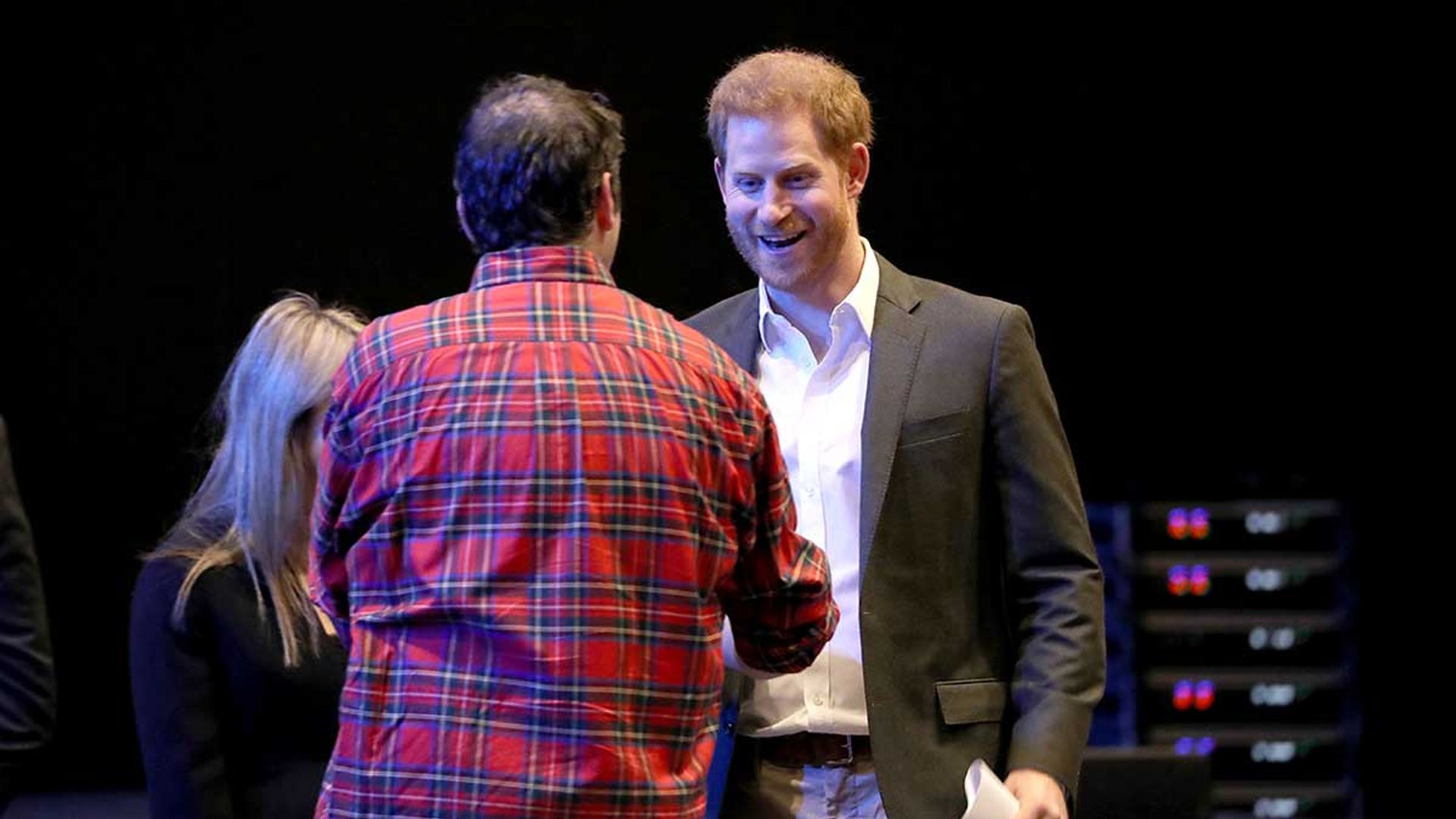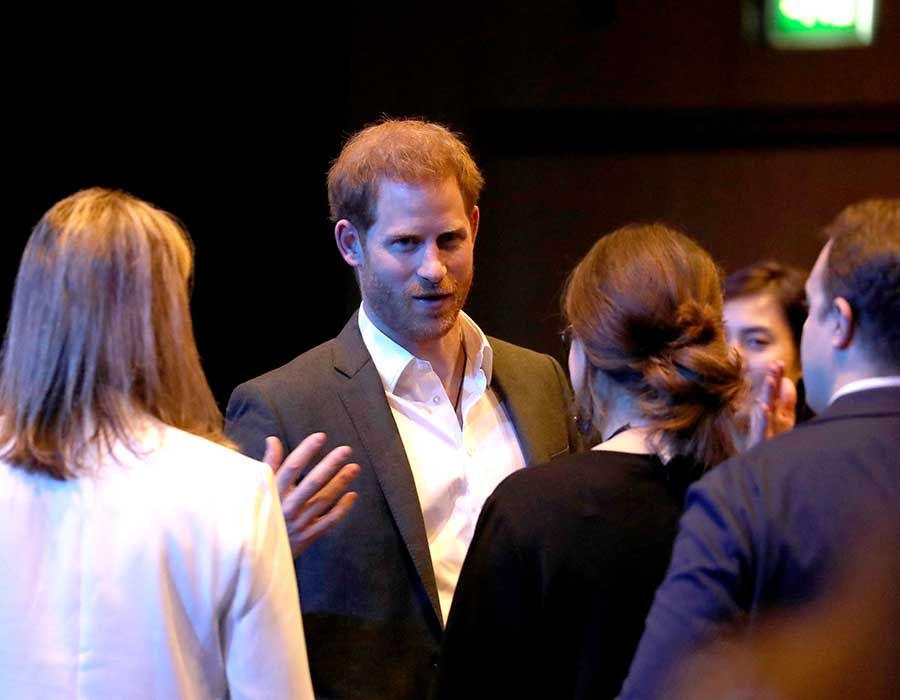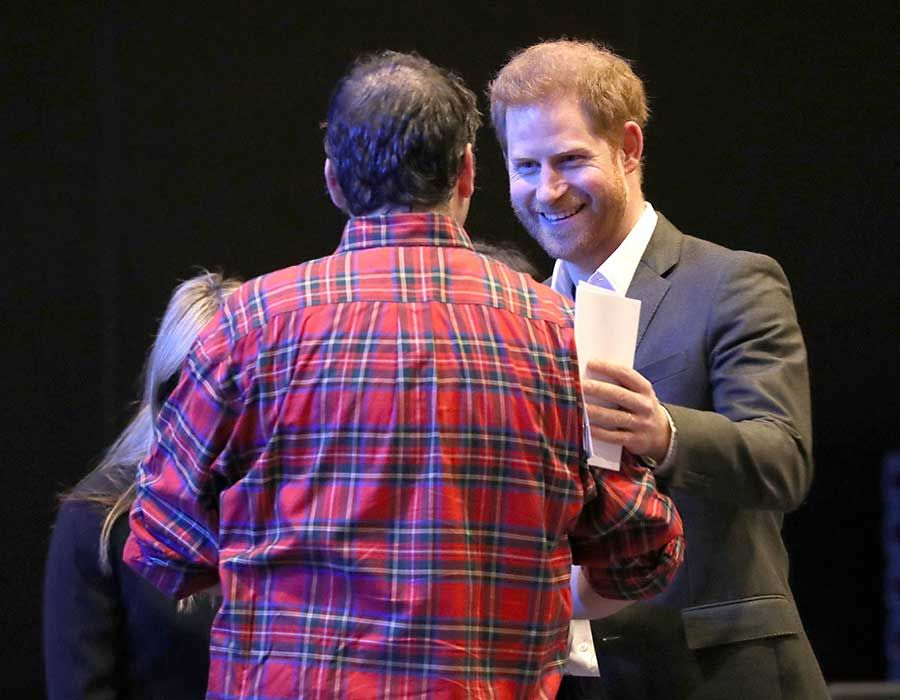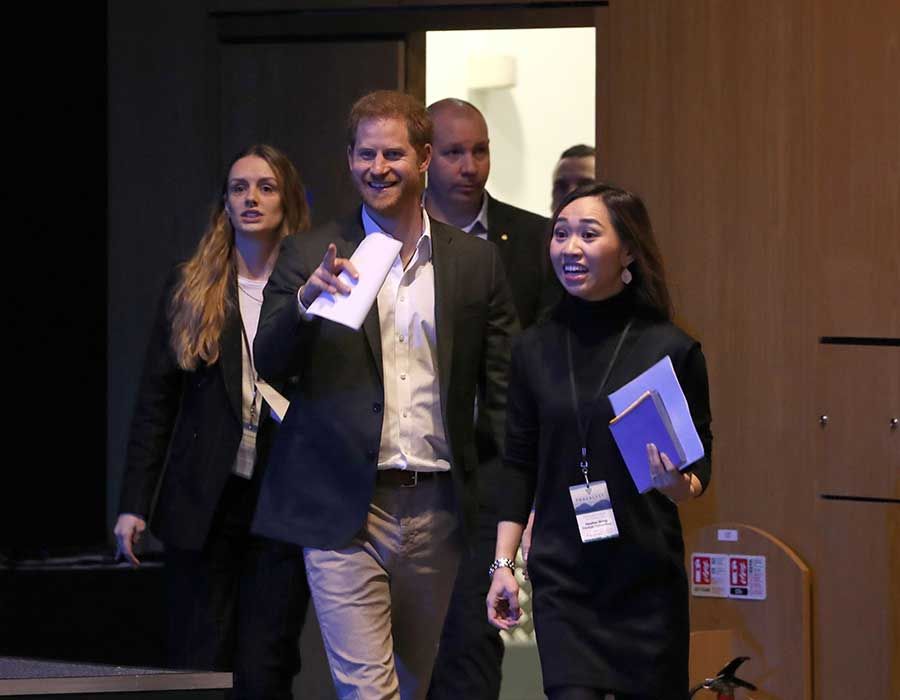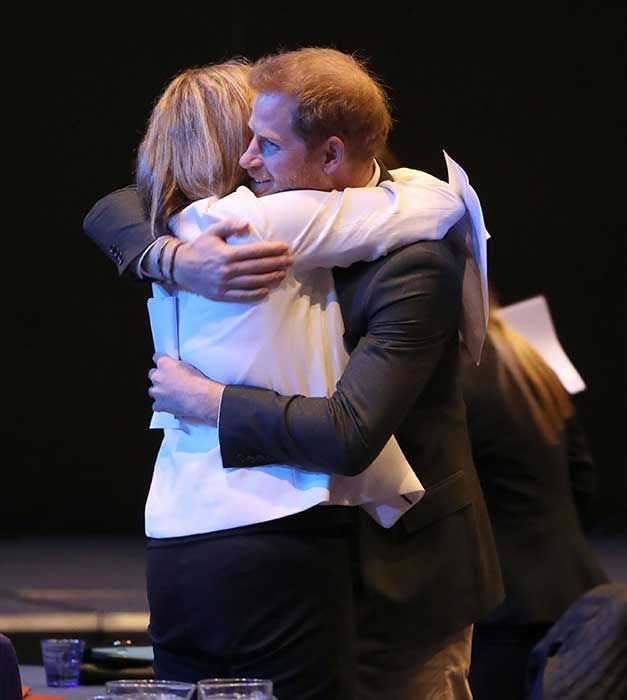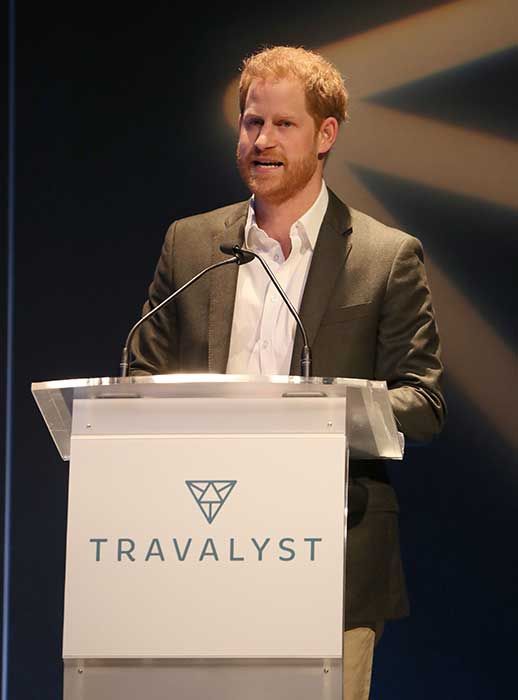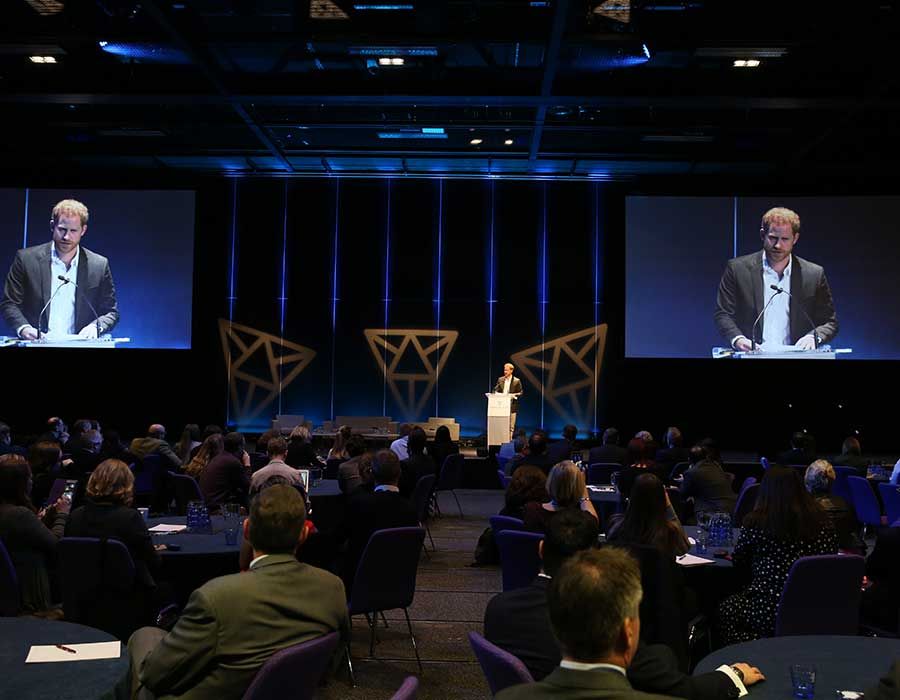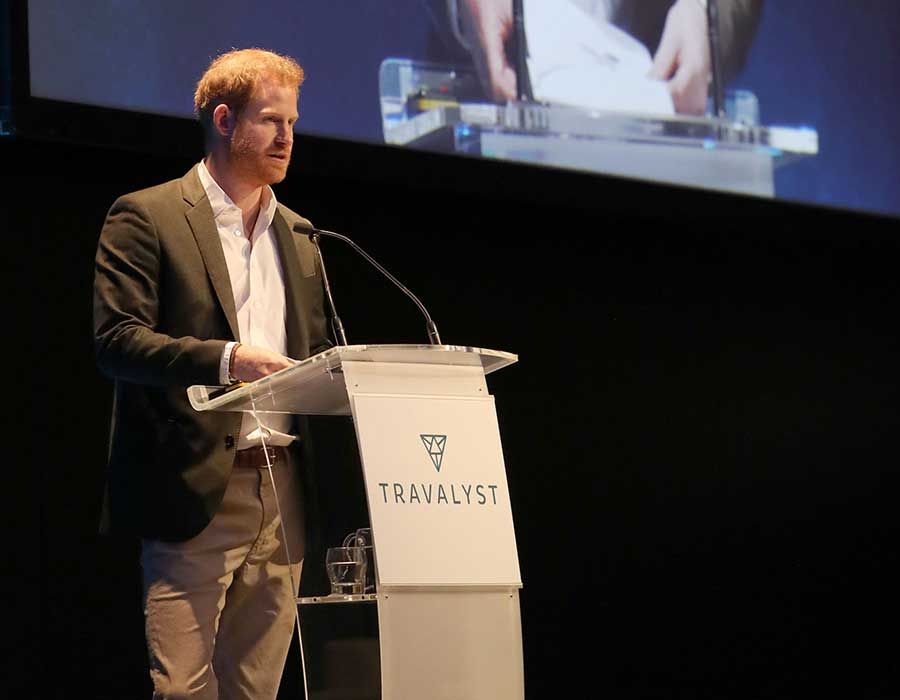The Duke of Sussex made his first public appearance since the agreement that he and wife Meghan will be stepping back as senior members of the royal family was confirmed. Prince Harry, 35, attended a summit for his sustainable tourism project, Travalyst, in Edinburgh on Wednesday. He founded the coalition along with brands including Booking.com, Skyscanner, Tripadvisor, Trip.com and Visa last year.
Before the Duke took to the stage to deliver a speech, host Ayesha Hazarika told delegates: "He's made it clear that we are all just to call him Harry. So ladies and gentlemen, please give a big, warm, Scottish welcome to Harry."
Harry was pictured arriving at Edinburgh Waverley Station on Tuesday night, after taking a London North Eastern Railway train from London. He has returned to the UK from Vancouver Island in Canada, where he and Meghan are currently living with baby Archie.
Over the next couple of weeks, the Sussexes will carry out their final royal duties before they officially step back on 31 March. It has not been confirmed when Meghan will fly back to the UK, but she is due to attend the Endeavour Fund Awards with her husband on 5 March.
READ: Prince William and Prince Harry mourn loss of family member on Princess Diana's side
Harry was in good spirits as he arrived at the Edinburgh International Conference Centre for the summit.
MORE: Prince Harry spotted in Edinburgh for one of his last engagements as a working royal
In an Instagram post on SussexRoyal, it said that the founding partners are working with the Duke, "backed up by consumer demand, to transform travel and tourism globally so that every holiday people take, every trip they book, can have a positive impact on the destinations they visit."
A hug for Harry as he arrived at the event in Edinburgh.
The Duke of Sussex took to the stage to deliver a speech about the project and its aims. He spoke about the importance of finding ways to travel, which do not have an impact on the environment.
Harry said: "Tourism is one of the world’s largest economic sectors – generating nearly 9 trillion dollars globally each year – representing 1 in 10 jobs and more than 10% of the world's GDP – and, it is rapidly growing. It is predicted that tourism will reach over 1.8 billion travellers by 2030. If we do not act, and in large part get ahead of this inevitable surge, this massive increase will mean we see more of the world’s beautiful destinations closed or destroyed, more communities becoming overwhelmed, more beaches shut because of pollution, and animals and wildlife driven from their natural habitat, which has a huge impact on communities and reduces tourism opportunities.
"But we are here to find ways to make sure that does not happen. We all see a future where people are able to take holidays and trips that have social, environmental and economic benefits to communities and destinations built-in. Based on our research, there is an increasing desire for these types of trips – and we want to make them a reality for everyone, but we can't do it without your help."
Representatives from the Scottish tourism and travel sector joined event partners Visit Scotland and EIC to help test and develop the latest work at the summit.
Scotland is one of the world's fastest growing tourist destinations and the Duke was at the event to hear what they're doing to put sustainability at the forefront of holidays that protect the environment and support local communities.
Asking to be addressed simply as Harry, he told the Travalyst event the industry in Scotland was at the forefront of making the sector greener, saying it could set an example for the rest of the UK and world.
He said: "We want to hear truths and perspectives from across the industry. We know that we do not need to reinvent the wheel – a lot of great work has already been done, but our research, again, shows that many of these endeavours have failed to scale or reach the consciousness of consumers.
"We have to work together with partners, experts, operators, communities, and others to scale-up the good practices already being used around the world."
